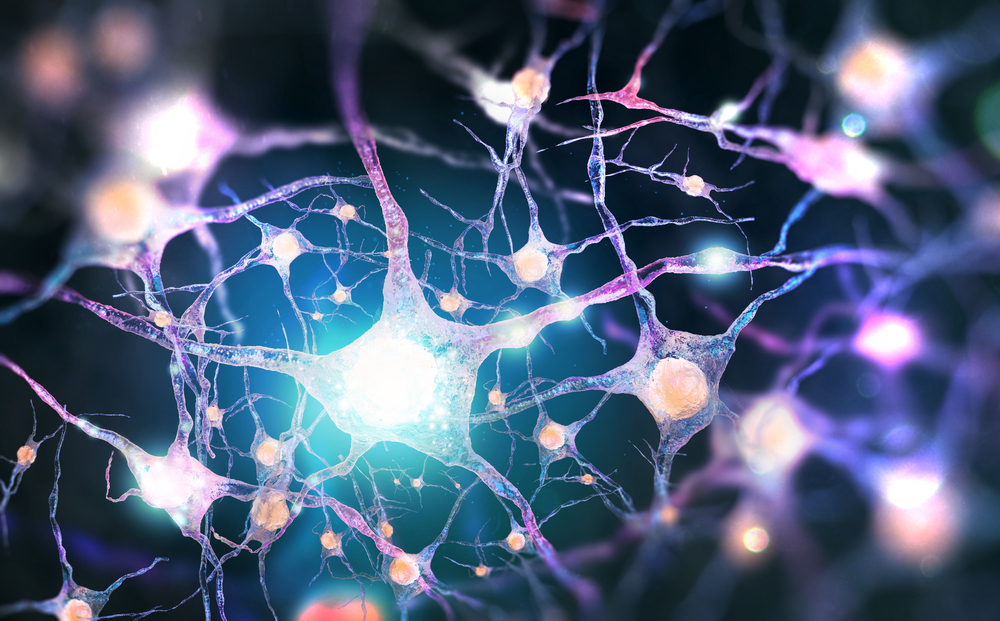Neuronal Pathway Linked to ALS, Other Neurodegenerative Diseases, Study Suggests

Research indicates that an injury pathway in fruit fly neurons might be responsible for the loss of synapses in neurodegenerative diseases like Alzheimer’s and amyotrophic lateral sclerosis (ALS).
Findings from the University of Michigan study were published in the open-access journal eLife, titled “Restraint of presynaptic protein levels by Wnd/DLK signaling mediates synaptic defects associated with the kinesin-3 motor Unc-104.”
A neuron, also known as a nerve cell, has three major components: an axon, or long nerve fiber; a synapse, a specialized site for information exchange between cells, usually found at the end of an axon; and a cell body, which produces molecules that are then transported along the axon to the synapses. These molecules are the coordinators of the exchange of information that happens at the synapse level, with neurons forming more than one synapse with other nerve cells.
The transport of these molecules is carried out by proteins known as molecular motors. A protein called Unc-104 is a major transporter of those molecules in fruit flies. In the study, the team used fruit flies without their Unc-104 gene, meaning they could not produce the Unc-104 protein.
Results showed that when Unc-104 is damaged or mutated, synapses become defective. However, these synaptic problems could be reversed by inhibiting enzymes in a specific signaling pathway. The pathway, known as Wnd/DLK, is conserved between flies and humans and regulates the neuronal response to axon damage.
Using electrophysiology tools, the team noticed that when they turned off the neuronal injury pathway (Wnd/DLK), synapse function was restored. Further research revealed that the Wnd/DLK signaling pathway is triggered by an impaired Unc-104 protein.
Once activated, the pathway causes a reduction in the total amount of synaptic proteins that the cell body produces, matching the neuron’s reduced ability to transport them. Although this may be beneficial to the neuron as a way of adaptation to its impaired axonal transport, the synapse information exchange is also affected.
“When the injury pathway was knocked down in flies, the massive accumulations of proteins in cell bodies suggested to us that it functions as a stress response mechanism, to prevent unwanted build-up of proteins when axonal transport is impaired,” lead author Catherine Collins, associate professor of molecular, cellular, and developmental biology, said in a press release.
A new study published in Science Translational Medicine complements this work. The recent findings suggest that the injury pathway may be activated in ALS and Alzheimer’s disease patients, once again implying injury pathway activation impairs synapse function.






